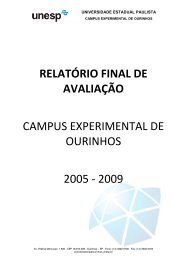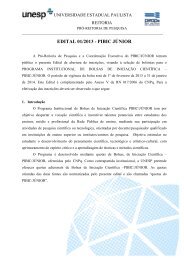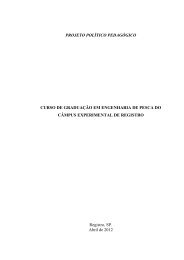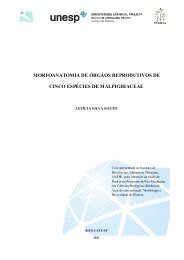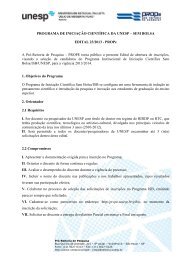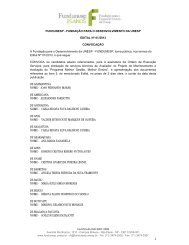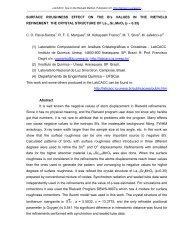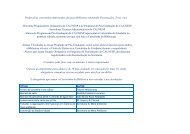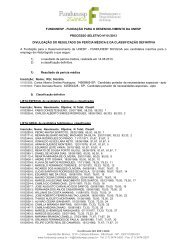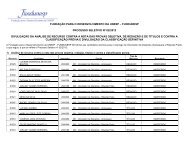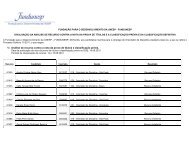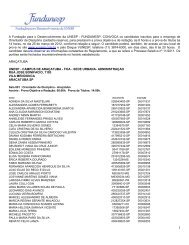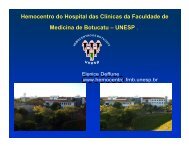FACULDADE DE MEDICINA “JÚLIO DE MESQUITA FILHO ... - Unesp
FACULDADE DE MEDICINA “JÚLIO DE MESQUITA FILHO ... - Unesp
FACULDADE DE MEDICINA “JÚLIO DE MESQUITA FILHO ... - Unesp
You also want an ePaper? Increase the reach of your titles
YUMPU automatically turns print PDFs into web optimized ePapers that Google loves.
ABSTRACT<br />
Time off or retraining due to illness and its implications in nursing<br />
management.<br />
Work activities have a special place in Man’s life. There is currently great<br />
interest in worker’s health, mainly in the area of health given the variety of<br />
occupational risks. The health worker looks after the client, but ends up<br />
neglecting his own health. Time of sick is a problem in health service<br />
management. This investigation was proposed due to worries about the causes<br />
of time off and retraining due to illness; it focused on nursing professionals. The<br />
objective was to identify the causes which triggered time off for health<br />
treatment in a nursing team, and to understand how individuals lived with job<br />
retraining in a public hospital institution in São Paulo State interior.<br />
Methodology: The study had a quantitative and qualitative character. The<br />
quantitative step characterized the profile of the nursing team and investigated<br />
the reasons for time off for treatment between 2003 and 2007. The qualitative<br />
phase consisted of interviews to understand how nursing professionals lived<br />
with the retraining process. Both were analyzed using Content Analysis as<br />
proposed by Bardin. Results: The main causes of time off were mental and<br />
behavioural disturbances, followed by osteomuscular system and conjunctive<br />
tissue diseases, lesions, envenoming, and other consequences from external<br />
causes (mainly strains, fractures, and dislocations), and in forth place,<br />
circulatory system diseases. The responses revealed problems in several areas<br />
of the nursing work process, “Work Organization”, “Teamwork”, “Time off and<br />
retraining”, and “Team Management”, generating suggestions for improving<br />
management, communication, and humanization process in professional and<br />
hierarchical relations. Final Considerations: The four commonest causes<br />
represented 63.46% of all time off. The responses revealed that work is<br />
intrinsically linked with living with disease and suffering, blaming the nursing<br />
worker for being ill, generating silence when faced with pain, refusing care. The<br />
retraining process generated individual, professional and social feelings of<br />
incompetence and guilt for the worker. Important reflection and attitude changes<br />
are urgently needed, supporting team management through “looking” at<br />
worker’s health, which will consequently improve care given to the public.<br />
Key-words: nursing; Occupational Health ; Sick Leave ; Health Manpower ;<br />
Management.



